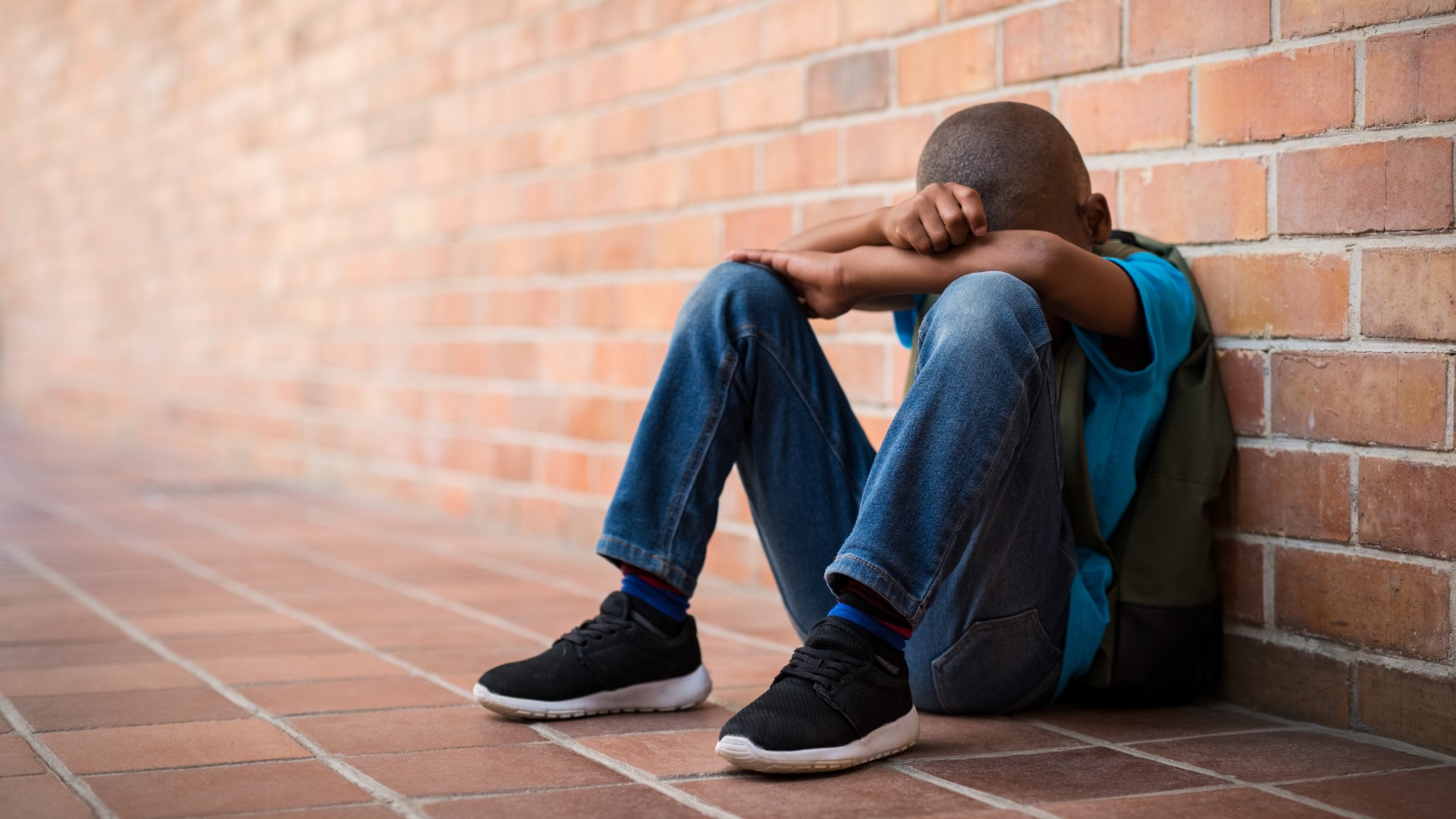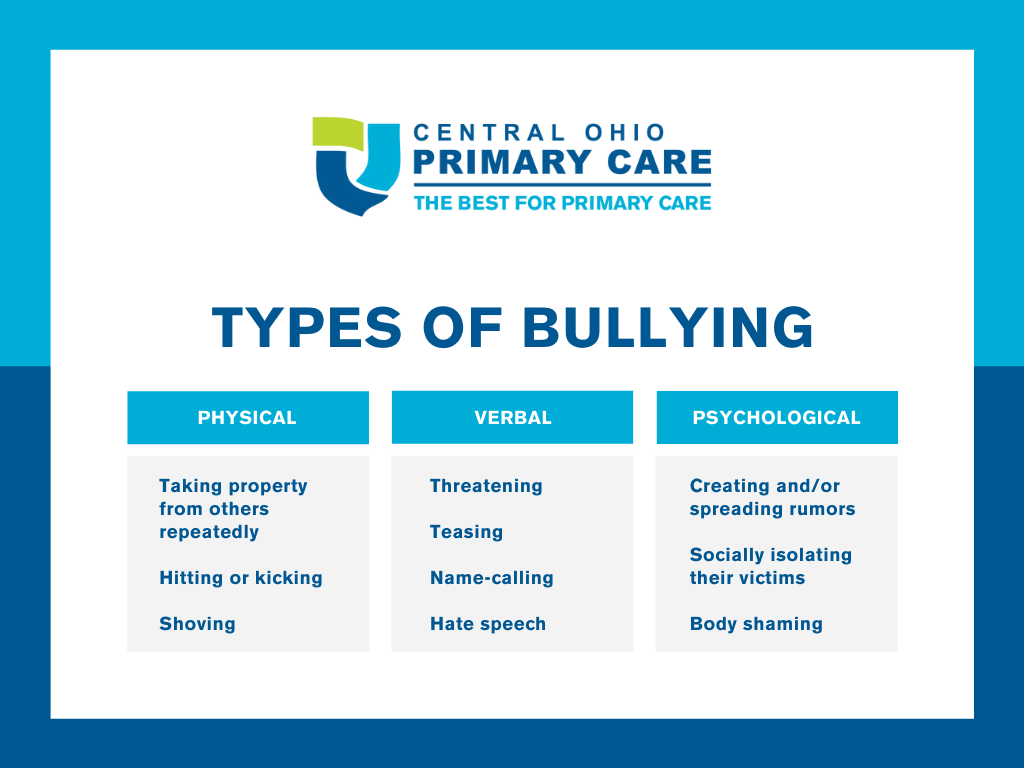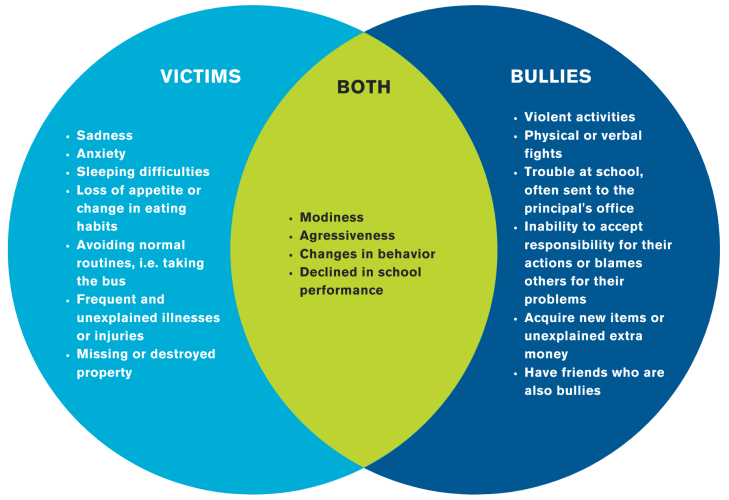
What is bullying?
Bullying is a repeated negative or aggressive activity that is done with the intentions of harming or bothering someone who is perceived to be in a less powerful position. It is recurring and meant to intentionally harass or even physically harm someone who is perceived as unable to physically or mentally defend themselves or is disadvantaged.
Bullying can happen in school, on the playground, in the neighborhood-anywhere. It can even happen electronically or online, known as cyberbullying. This can be done through texting, social media, gaming sites, chats, emails, apps and websites.
Both victims and bullies may develop academic and/or mental and physical health problems. Victims of bullying may become scared, depressed, anxious, have low self-esteem, avoid school, feel physically ill, have sleeping issues, and even think about harming themselves. Bullies may be more likely to develop problems into adolescence and adulthood such as fighting, drug and alcohol abuse, criminal activity, and abusive relationships.
Types of bullying
Bullying can be physical, verbal, or psychological.

What to look for
Changes in your child’s normal behavior may be warning signs of bullying.

Some may have vague symptoms or none at all, so it may be difficult to know if your child is a bully, is being bullied, or is a bystander. That’s why it’s a good idea to bring up the subject, even if you don’t think anything is wrong.
How to help
It is important to talk about bullying with your child for their health and safety. Always try to remain calm and control your own emotions. One of the reasons kids don’t tell parents about bullying is because they are afraid of their parents’ reactions. Other reasons include feeling too scared or humiliated, or viewed as weak or a tattletale. It is important to reinforce that bullying is unacceptable and that adults need to know about any acts of bullying so the situation can get better.
You can start by asking about how things are going at school or how they feel about the other kids in their class/neighborhood. You can also even be direct and ask if anyone gets teased or bullied.
For victims:
- Reinforce that bullying is wrong and that this is not your child’s fault. Offer support and remind them it is always okay to ask an adult for help.
- Encourage your child NOT react or give into the bully’s demands. Bullies typically thrive on upsetting their victims so when they see them reacting that way, they often continue the bullying behavior. Talk to your child about staying calm, walking away, and then telling an adult as soon as possible.
- If ignoring the bully is not helping, talk about being firm with the bully and asking them to stop. Have your child practice or role play with you about what they would say.
For bullies:
- Remind your child that bullying is wrong and hurts others. Encourage open communication with your child about how they are feeling and why they are behaving or reacting in such a way. Talk to your child about different ways to behave or react in their situation.
- Model positive behaviors. Kids learn from their parents/caregivers and watch your interactions more than you think.
- Do not use physical discipline. Use other effective and age appropriate methods such as time-outs or loss of privileges. Be sure to always explain why they are being disciplined and discuss what they could have done differently.
For parents:
- Talk with your child’s teacher, counselor, or school administrators if the situation is not improving.
- Have your child talk to their pediatrician, especially if you are worried about their mental health.
- Learn about your local school/state bullying laws. If you have tried all the standard ways to prevent bullying and still fear for your child's safety, you may need to contact legal authorities.
Resources:
